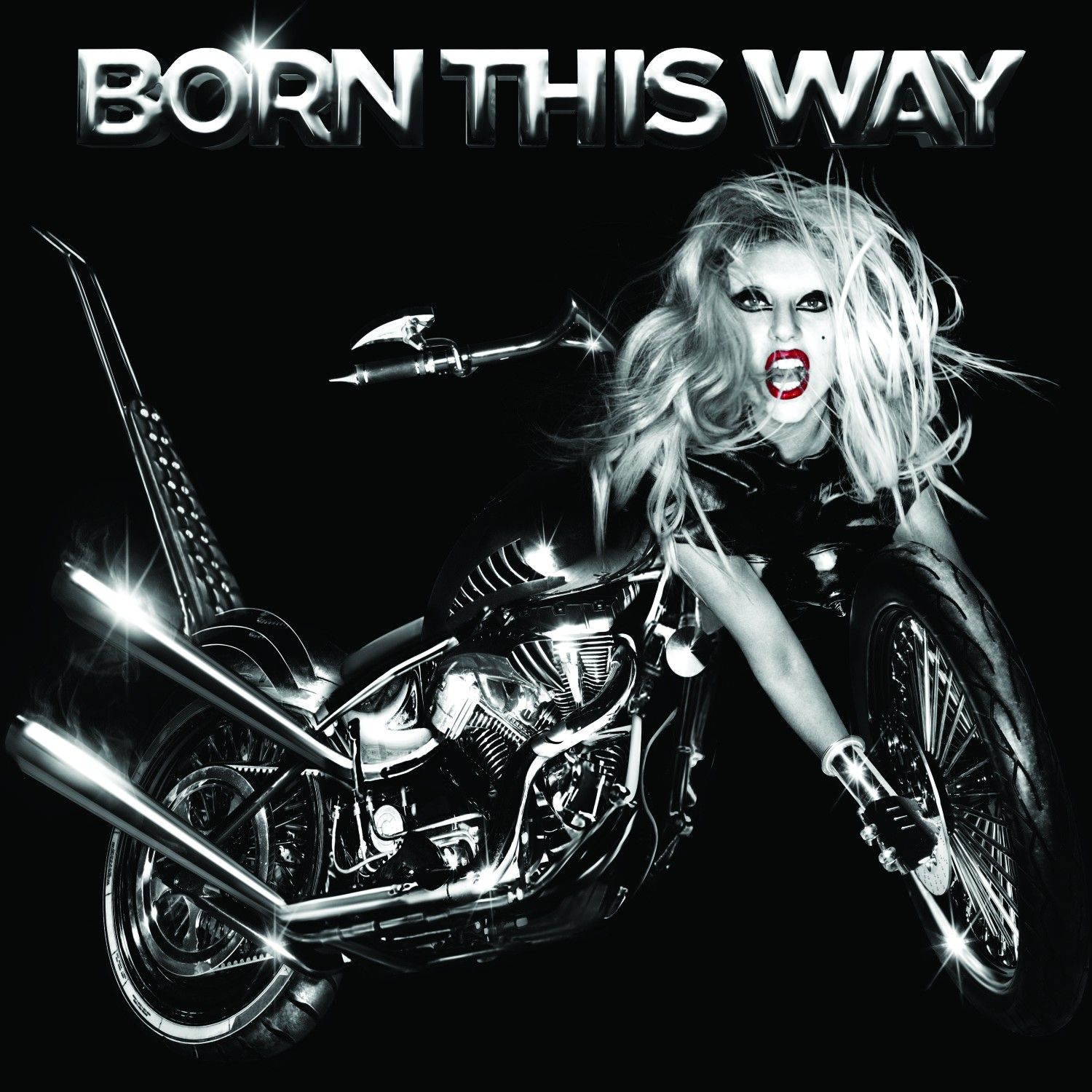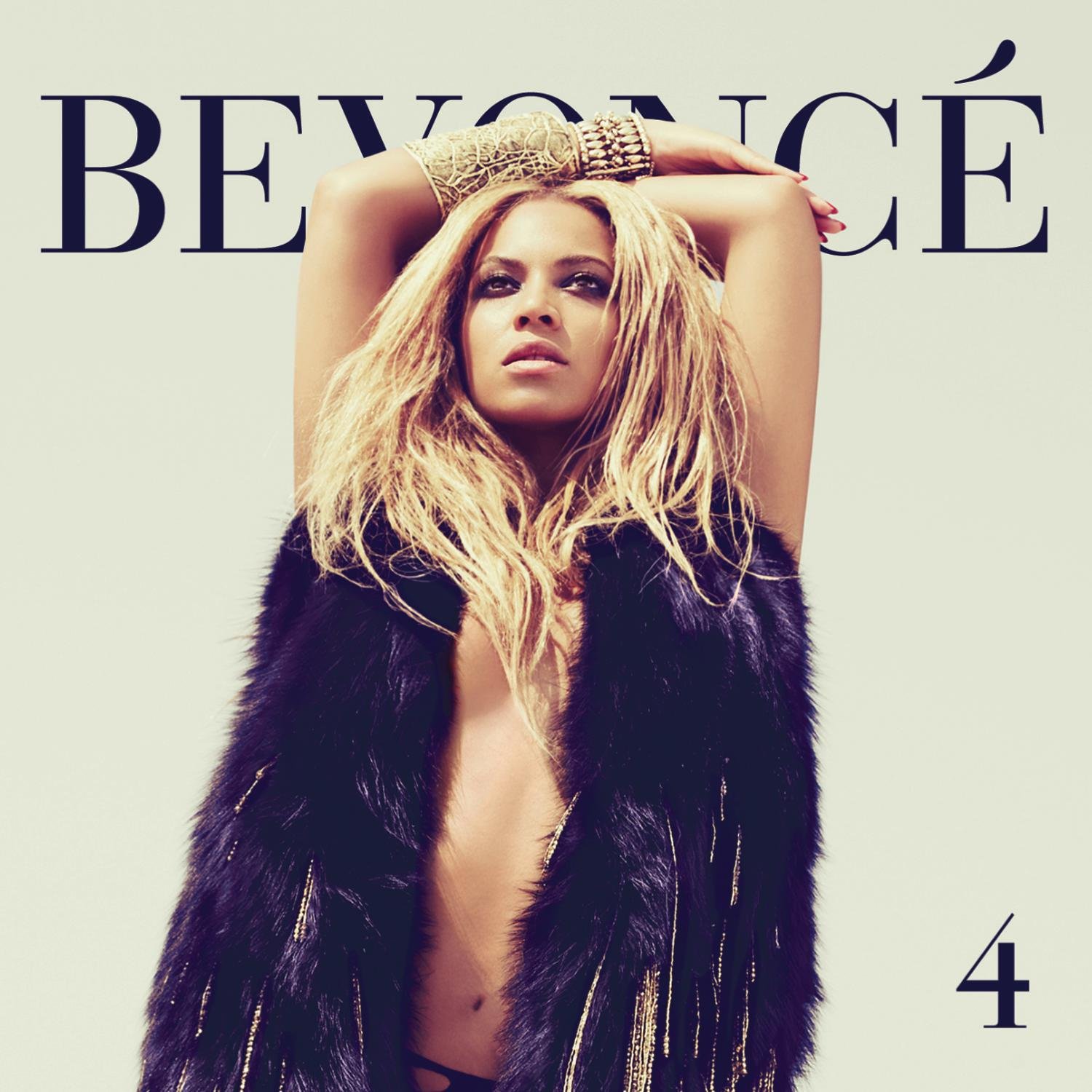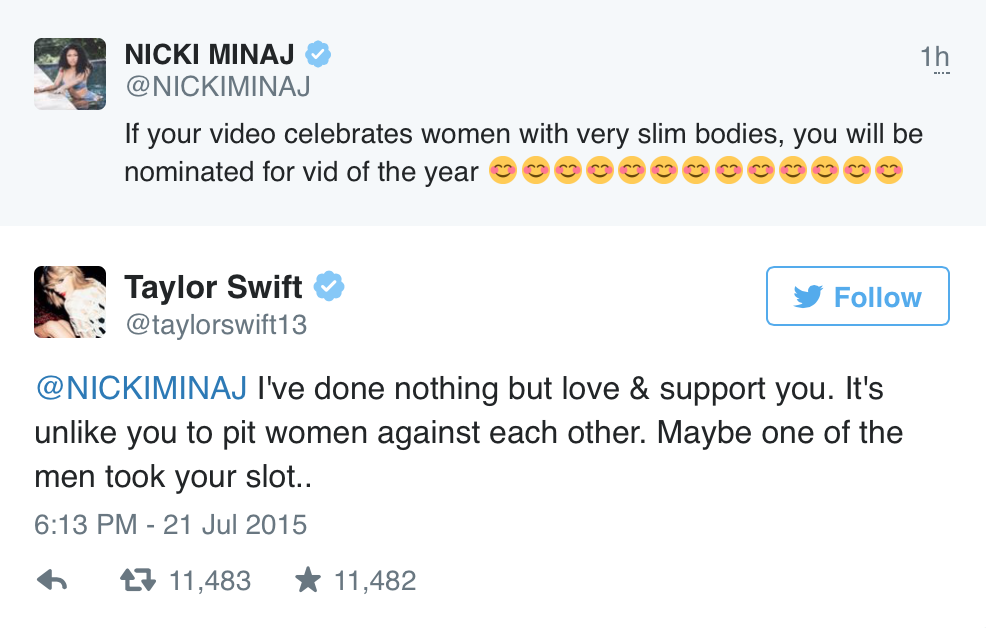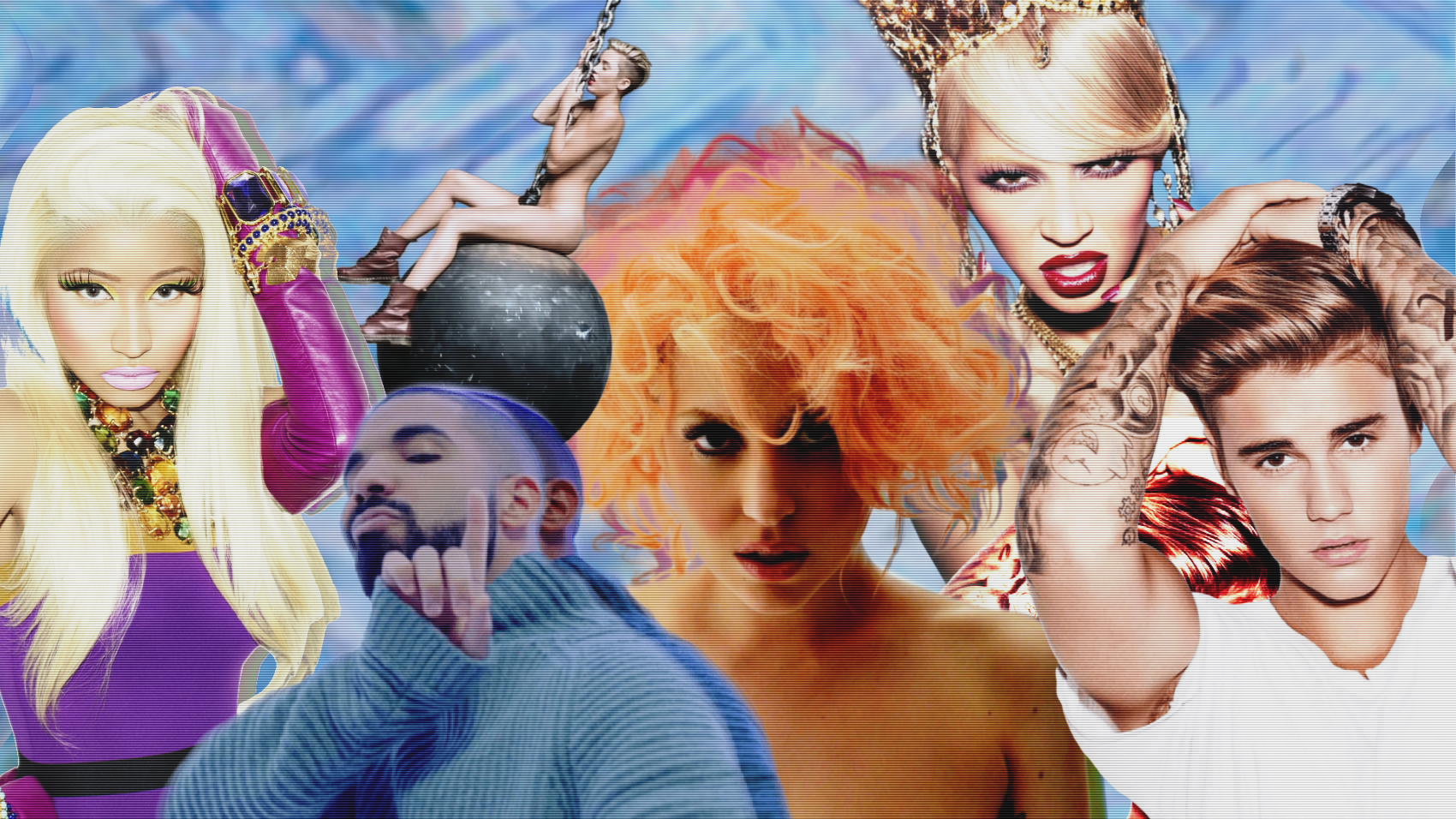As the old adage sort of goes: “pop don’t stop”. Not a week goes by where it’s not shape-shifting or absorbing the latest trends, evolving into a slightly different beast by the time another month rolls around. One minute you’ve got the biggest song on the planet and the next you’re applying for a reality TV show. One week you’re crashing into the Top 10 and the next week streaming kicks in and you’ll be lucky to peak at Number 38. So imagine what can happen over the space of an entire decade, i.e. ten bloody years! A lot, basically.
Below are ten key moments that best represent the significant changes pop has made since 1st January 2010.
1. Nicki Minaj owns “Monster” (2010)
It’s hard to believe it now but it could have gone either way for Nicki Minaj in 2010. Her solo singles had flitted erratically between hard-edged bangers (“Massive Attack”) and pure pop (the will.i.am collaboration “Check It Out”), and it felt like that all important respect from her peers was still missing. To say she dominated Kanye West‘s lascivious “Monster”, a track that also featured “quite good” rappers Rick Ross and Jay-Z, Nicki’s hero, is an understatement.
Across 32 bars, she tore into the song with an unbridled relish, instantly dismissing any notion that female rappers should remain a cult concern, while making Kanye in particular appear fairly pedestrian in comparison. Nicki was then free to flip flop between rap and pop with ease, going interstellar via the playful “Super Bass” a year later, before – whether she likes it or not – making space for Cardi B to come along and join her in hip-hop’s top tier.
2. Adele colours the Brits beige (2011)
As Popjustice‘s Peter Robinson noted with preternatural foresight in the Guardian back in 2011, the defining point for this decade in pop came at that year’s Brit awards. Having turned down a chance to launch her Born This Way album, Lady Gaga left the door open for Adele‘s heart-wrenching performance of “Someone Like You” to steal the show. As the lights went back up to reveal a tear-stained O2 Arena, host James Corden breathlessly ushered in what Robinson defined as The New Boring. “You know, you can have all the dancers, pyrotechnics, laser shows you want, but if you sound like that all you need is a piano,” Corden mused.
Variations of the New Boring – “a ballad-friendly tedial [sic] wave destroying everything in its path” as Peter puts it – have dominated ever since, with pop’s theatricalities dampened by Ed Sheeran’s frictionless strum-a-longs leading to a raft of imitators clamouring to earn that coveted John Lewis Christmas advert soundtrack slot.

3. Lady Gaga becomes a motorbike and goes too far (2011)
Lady Gaga started the decade at Number One in the UK with “Bad Romance”, boosted by a performance of the evergreen banger during the peak-era X Factor live shows (ugh, remember them?) while sat on a toilet at the end of a massive bath. It was as ridiculous as it was brilliant. She was untouchable, basically.
As the New Boring’s rot set in, however, that ridiculousness calcified into exhausting, and critics, myself included, bemoaned her outlandishness as being “too much”. By the time she unveiled Born This Way‘s album cover — her head crudely welded onto the front of a motorbike — everyone seemed to have forgotten that pop was supposed to be ludicrous, and that popstars were meant to do silly things like imagine themselves as a Harley-Davidson. During the campaign for Artpop she built herself a flying dress to whizz around an “Artrave” to launch the album, but by that point everyone was too busy rolling their eyes to notice. Unfortunately, the joke was on us when she pivoted to jazz in 2014 and then country for 2016’s Joanne, the New Boring claiming its latest, and most unexpected, victim.

4. Beyoncé gets bored of waiting (2011)
Beyoncé‘s excellent fourth album, 4, was released at the end of June, the day after she headlined Glastonbury (much to Zane Lowe’s obvious bemusement). Only, the album had actually leaked three weeks earlier, where it was promptly downloaded 11 million times before various warnings were issued by her label. It would mark the last time Beyoncé would play by the rules of industry release schedules again, dropping 2013’s BEYONCÉ without warning, before teasing 2016’s Lemonade via a HBO trailer for what looked like a documentary but was in fact a “visual album”. This tactic of shock and awe (and, for a time, “visual albums”) has now become the industry default for pop’s heavy hitters (although to this date no one has Beyoncéd an album quite like Beyoncé).
5. Miley takes a wrecking ball to her reputation (2013)
Like Britney before her, Miley Cyrus had to contend with the parameters of people’s expectations. Another Disney star turned pop singer, she’d tried to push the boundaries with 2008’s notorious Vanity Fair cover, before knowingly raising her reputation to the ground completely with 2013’s Bangerz album. The defining snapshot, perhaps of the whole decade, is of Miley swinging around a room on a giant wrecking ball, an image later fused to her twerking in front of Robin Thicke at the MTV VMAs. Crude, problematic (Miley later apologised for her appropriation of hip-hop tropes) but infused with the rebelliousness of pop’s forebears (hiya Madge!), Miley helped push through the idea that female pop superstars could be complicated.
6. Zayn breaks Directioners’ hearts (2015)
The central conflict with any pop band is that everyone knows its lifespan is short. It’s a given, and yet the denial is so tantalising. In March 2015, Zayn Malik — always One Direction‘s unknowable entity — decided to set the ball in motion vis-à-vis 1D’s demise, leaving to “relax and have some private time out of the spotlight” (aka start recording solo material like the excellent “Pillow Talk”). Once he left, the fractures already apparent became more pronounced, with each member seemingly growing out of the band in different — wait for it — directions. That various members would later engage in unseemly spats with their former bandmates only solidified how awkward it’s all going to be when the “hiatus” comes to an end and they leap on culture’s ever-growing obsession with nostalgia.

7. Taylor Swift tweets Nicki Minaj (2015)
Taylor Swift spent the first half of the decade in imperious form. 2012’s Red album saw her dip her toes into big pop, which in turn paved the way expertly for follow-up 1989‘s complete transformation. Out went the country framework and in came thunderous pop perfection. Taylor hadn’t put a foot wrong at that point, alchemising her treatment at the hands of Kanye at the 2009 VMAs into an industry spokesperson for the maligned or unfairly treated. That was until, in an act of strange carelessness, she responded to a tweet by Nicki Minaj calling out what she saw as inherent racism after her video for “Anaconda” was snubbed in the nominations for Video of the Year at the 2015 VMAs. Swift assumed she’d been slighted and chimed in: “I’ve done nothing but love & support you. It’s unlike you to pit women against each other. Maybe one of the men took your slot.” Nicki was confused, Taylor then condescendingly suggested that if she won she’d take Nicki up onstage with her. It felt like the first time Taylor had read the room wrong, opening the floodgates for a litany of criticism that would eventually crest with another run in with Kanye ahead of her bitter and twisted Reputation album.
8. The X Factor stops creating dreams (2015)
The promise of The X Factor was it would turn everyday people into superstars, complete with million pound record deals and multi-platinum albums. Only, thanks to the internet, everyday people are turning themselves into superstars all the time, and no one really buys albums anymore, and actually even record deals feel like quaint prizes to be offering anyone. In 2015, Louisa Johnson was crowned the winner, scoring a semi-hit with her winner’s single before teaming up with chart catnip Clean Bandit for the top 5, “Tears”. Then, well, nothing. No winner’s album. Even with two Top 10s, Simon Cowell’s record label Syco didn’t feel it was worth releasing an album and fulfilling its promise. The fact that, a year later, dull as dishwater Matt Terry did get to release an album off the back of Top 60 single tells its own story about the expectations placed on female popstars versus everyday male “singer-songwriters” with fringes.
9. Justin Bieber mumbles through “Despacito” (2017)
Newsflash: music has existed outside of English-speaking countries for a while now. Even in the more recent past, every British and North American pop fan of a certain age remembers releases by the likes of Christina Aguilera, Shakira, Enrique Iglesias and Celine Dion, catering for markets that were often kept separate. But in the latter half of this decade, in collaboration with the globalised nature of pop consumption thanks to the internet and streaming, it’s taken a massive leap towards glorious dominance. K-pop’s BTS are one of the biggest acts on the planet, Rosalía‘s making some of the weirdest and best pop music going, and every single English-speaking pop act is desperate to “do a ‘Despacito’” i.e. appear on a remixed version of a huge Latin hit and land themselves a whole new audience.
10. Drake owns Spotify (2018)
When Drake — the streaming era’s lodestar — released his 2018 album Scorpion, Spotify basically lost its mind. Not only did he dominate their rap and R&B playlists, his face appeared on the front page for lists containing no Drake songs. “Massive Dance Hits,” for example, and, erm, “Best of British” and, hang on, “Happy Pop Hits”. Some subscribers who had paid for no ads successfully got a refund, while, one would assume, other popstars quietly seethed with jealousy at how streaming’s apparent level playing field had become re-turfed by a sad Canadian. It speaks to streaming’s increasing power, a move that’s meant increased chart dominance for certain acts (Ariana Grande, Billie Eilish, The Weeknd), while leaving others behind (poor Olly Murs hasn’t had a top 10 since the new streaming-skewered chart rulings were implemented). Perhaps it also underlines that traditional charts themselves are meaningless in an age of splintered metrics? Only time will tell.
